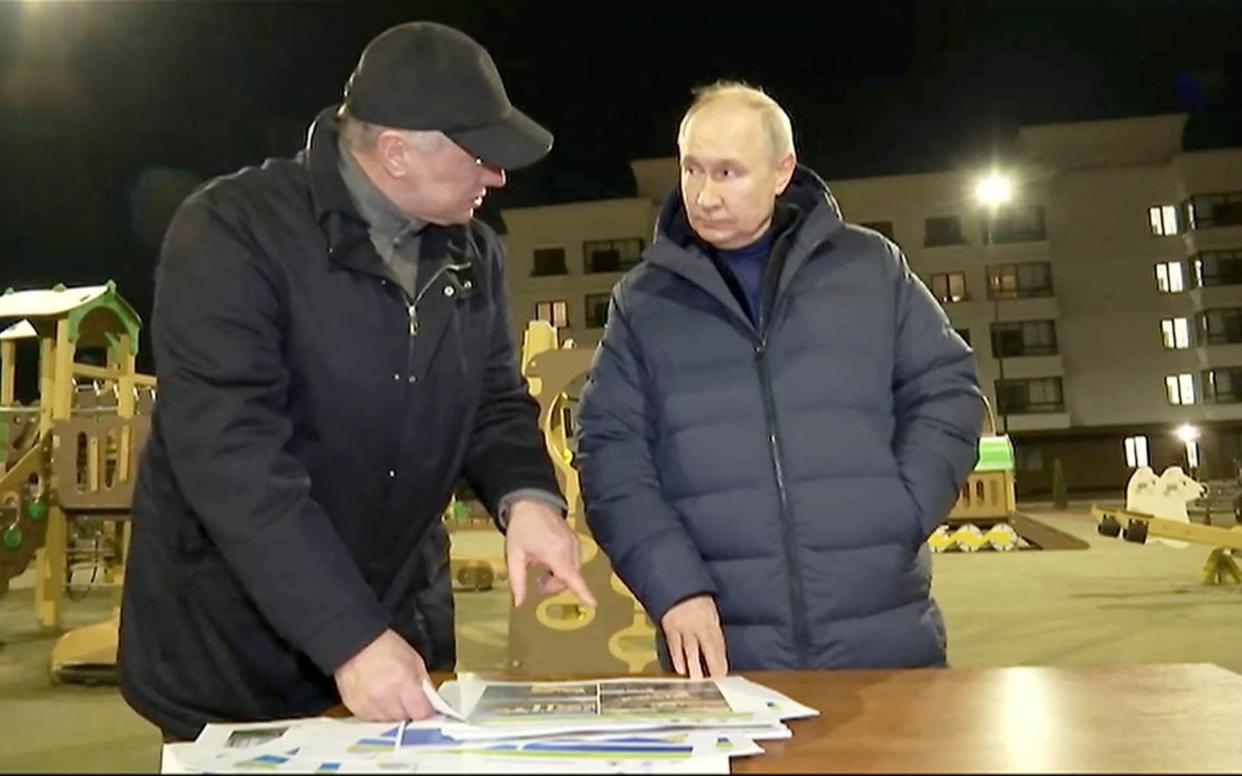Putin's Mariupol visit is a symbol of his failure

- Oops!Something went wrong.Please try again later.
- Oops!Something went wrong.Please try again later.
What was going through the mind of Vladimir Putin as he travelled through the devastated streets of Mariupol on his first visit to occupied Ukraine since the invasion last February? Was he proud of the handiwork of his armed forces in destroying or damaging some 2,500 buildings and almost razing to the ground the vast Azovstal steelworks, scene of a heroic last-ditch resistance by defending troops?
The Russians are using Mariupol to consolidate their hold in the Donbas, bulldozing the wrecked buildings and constructing a new town with flats, schools, hospitals and even a concert hall. The ruined metallurgical plant, one of Europe’s biggest, has been turned into a ‘tech and eco’ park. They are trying to erase its Ukrainian past, seeing Mariupol as a strategically important link to Crimea, annexed in 2014.
But no amount of reinvention can disguise the fact that Mariupol represents not a triumph for Russia but an emblem of its failure. It was not this city that President Putin wanted to be driving around when he ordered his troops to cross the border, but Kyiv. Yet that prospect is as far away as ever.
His surprise visit on Saturday came just 24 hours after being accused of war crimes by the International Criminal Court. Perhaps this was a gesture of defiance, a demonstration by Putin that he was not afraid to leave his country despite the warrant, though he now regards the Donbas as part of Russia. He may also have wanted to show President Xi Jinping of China, who is due in Moscow for talks this week, that he can leave the Kremlin.
The ICC has cited the forced removal of Ukrainian children in the arraignment though countless other crimes could be laid at the Kremlin’s door. However, the chances of ever bringing Putin to justice must be slim. Russia is far more powerful than the countries whose leaders have ended up at The Hague and it is hard to imagine any political or military development that would see him handed over or arrested.
Nonetheless, as Dominic Raab, the Justice Secretary, writes in the Telegraph, the warrant is a “significant step forward for accountability and shows that the international justice system is working”. But that is true only up to a point. Among those welcoming the ICC move was Joe Biden and yet the United States does not recognise the court. Isn’t it time it did.
